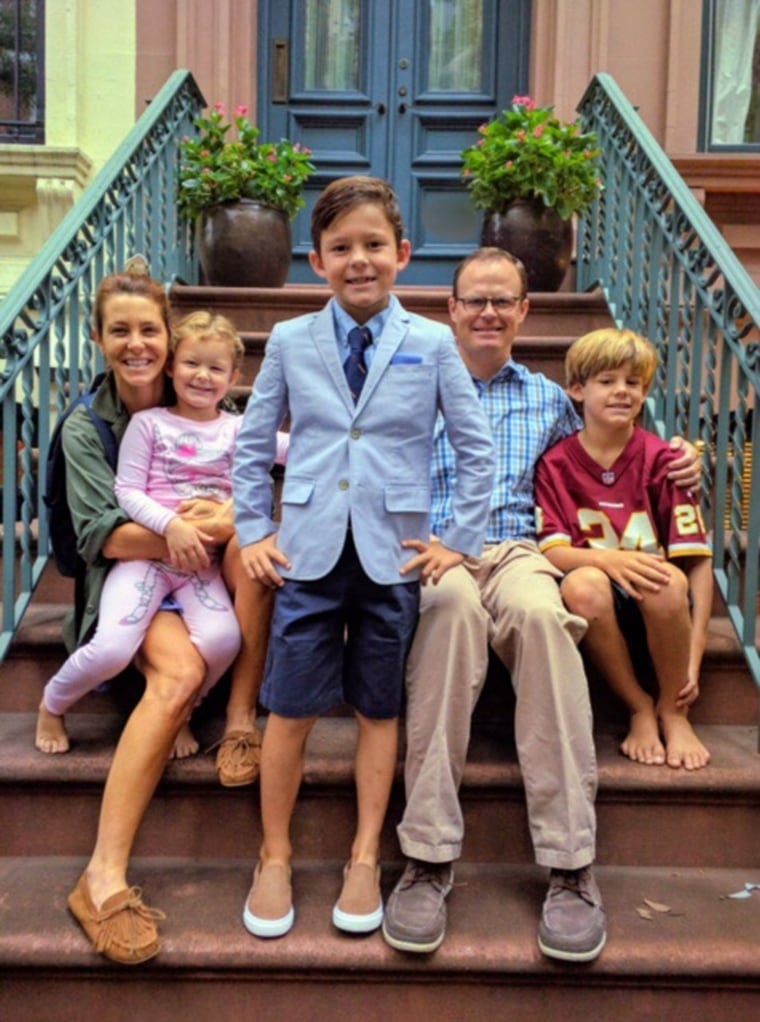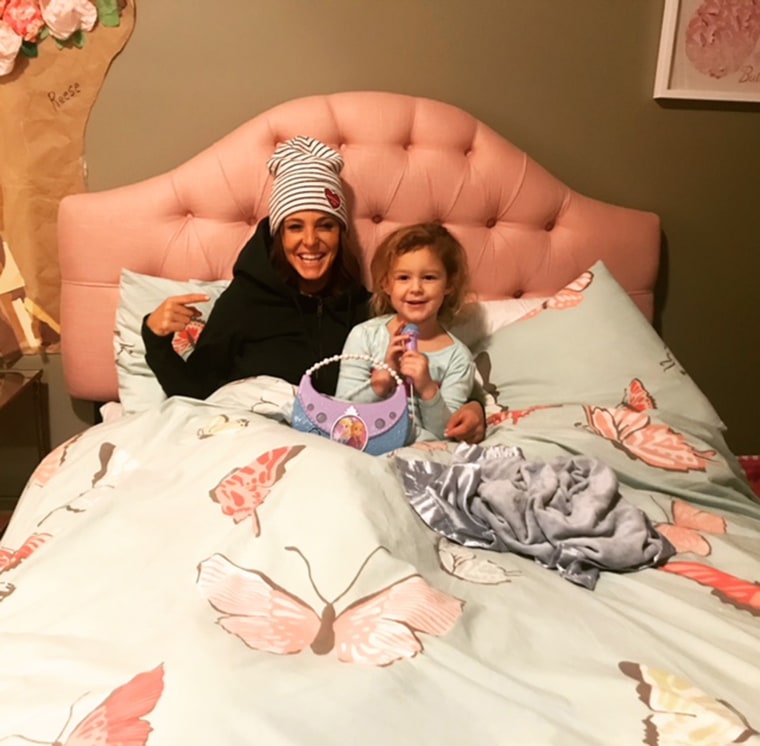I am a fully committed woman: an MSNBC TV anchor, an NBC correspondent, a mother of three, a wife — and I have an on-again, off-again relationship with fitness and hot chocolate depending on the day. I never wear just one of these hats; I can't count the times I've dictated work emails to Siri in the middle of the grocery store with a four-year-old hanging off of my back. Many working Americans face the same crunch: smartphones and other tech might give us the flexibility to work from anywhere, but we are never truly off the clock.
I'm several decades removed from winning a sticker for perfect attendance. So why not do less, so my actions matter more?
Americans of all backgrounds and in all kinds of circumstances are stressed out by feeling overwhelmed and being over-committed. According to the American Psychological Association, in any given month about a third of Americans are likely stressed from feeling overwhelmed. We don't want to disappoint our loved ones or our even our colleagues, so we agree to too much. Swinging by for a drink or staying later than usual for that work event everyone is going to — these don't sound like huge ordeals. But small, often trivial commitments take a toll. We have only good intentions, but an over-stuffed schedule makes for an unhealthy and even unproductive life.
You know it's time to step back and take a long, hard look at yourself when a New York City cabbie is giving you life advice.
Sometimes saying "no" is the best thing we can do for ourselves and the people around us. After all, it is only a matter of time before we reach a breaking point. Mine was in 2007, when I was on working in investment banking on a conference call in the back of a moving cab, changing into a bathing suit for my 9-month-old son's Mommy and Me swimming lesson. As I chirped the occasional "sounds great" to my client, while trying to pull a lycra strap over my head, the cab driver in the car next to me honked his horn, rolled down his window, and yelled, "Hey lady! You need a break!"
You know it's time to step back and take a long, hard look at yourself when a New York City cabbie is giving you life advice.

So I did. And I learned that no one wants the 15-minutes-late, half-asleep, semi-engaged version of me — not even my taxi driver and especially not my family. And I don't want to be that person, either.
This year, I made one new, small commitment: to not overcommit myself — to say "no." And as a result, to amplify my impact when I say "yes." I'm several decades removed from winning a sticker for perfect attendance. So why not do less, so my actions matter more?
Here's how I'm trying to do it — and I think it can work for most people. I write out my schedule for the week ahead on a white board. I step back. I take a second to look at it-to evaluate what each commitment means to me and my family. I ask myself, "Will my participation have an impact? Is my attendance essential to the success of the event or to the person I'm supporting, even if I know I won't be present?"
Then I delete something. I refocus my time and attention to something else, where I know I can contribute more meaningfully. It's daunting, so I started small, with one or two commitments in a week. Then I regrouped for week two.
The practice isn't about showing up for your kids, colleagues, friends and partner less. It's about doing more than showing up. In devoting more time and attention to fewer commitments, we can have a bigger impact on the things that matter most.
NEXT: How 'defusing my thoughts' helped me recover from debilitating anxiety
Want more tips like these? NBC News BETTER is obsessed with finding easier, healthier and smarter ways to live. Sign up for our newsletter and follow us on Facebook, Twitter and Instagram.

